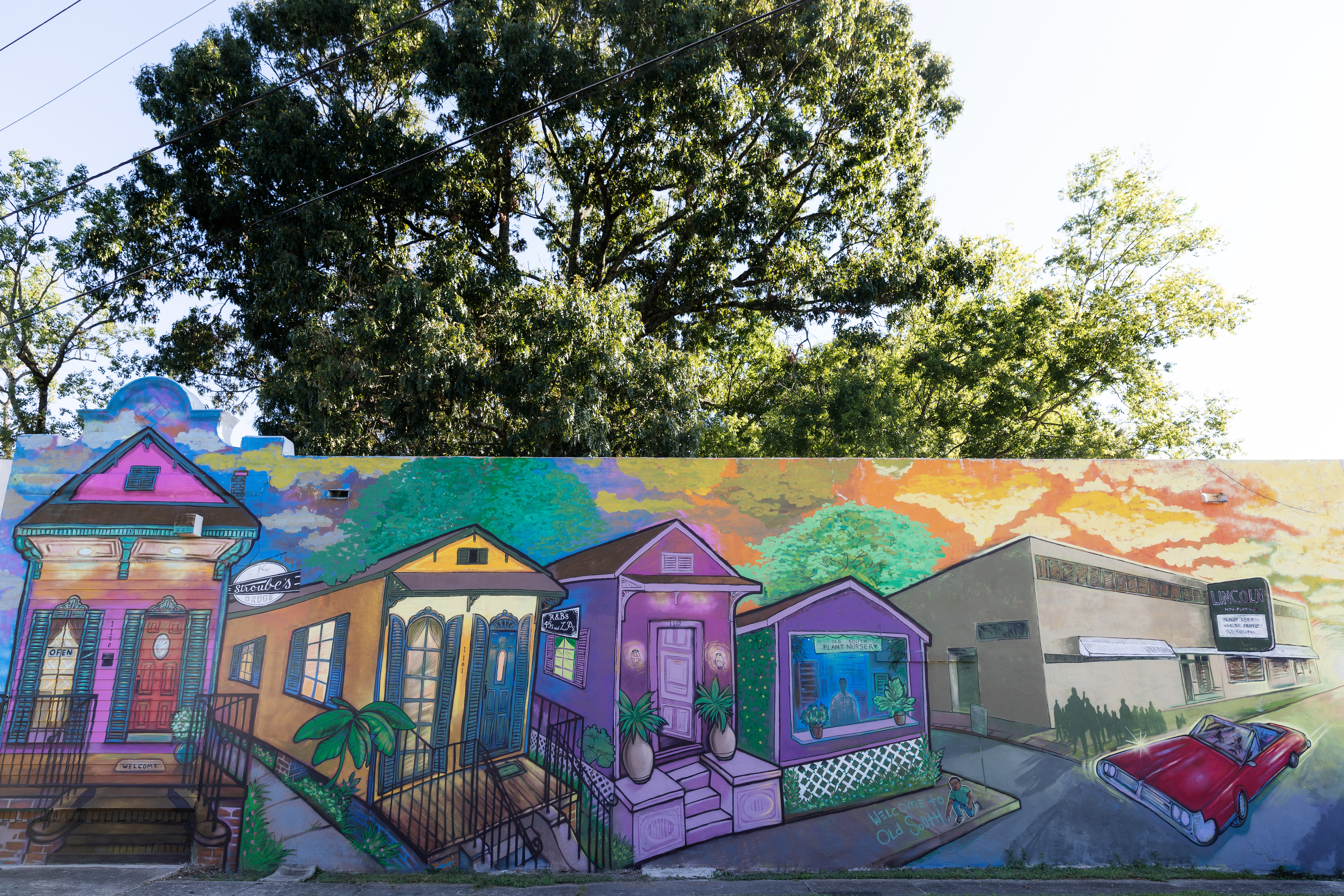
The Walls Project celebrates 10 years of community building this month
It’s the Walls Project’s birthday. The multifaceted nonprofit is celebrating a big milestone: a decade of making waves in the community through its mission to dismantle poverty with a strong focus on arts, education and community empowerment.
225 sat down with Walls Project executive director Casey Phillips and director of operations and communications Helena Williams to discuss the history of the organization, its upcoming anniversary celebration at Chelsea’s Live this Friday, Aug. 5, and what lies ahead on the other side of the decade mark.
What exactly is the Walls Project today?
Williams: Over the last 10 years, we’ve evolved into an organization that looks to break down the societal walls that perpetuate poverty. We do that through creative means, as well as collective impact and community building. We have a variety of programs that work towards this, one being our public arts program, which I think people are most familiar with—that’s our murals, installations and volunteer activities. Then we also have our Futures Fund program, which works to close that digital divide and educate youth and adults in technology. And then you also have our Baton Roots program which is helping food access and teaching people urban farming. And lastly, we have our OneRouge coalition program, which is a shared program with Metromorphosis, which aims to dismantle the drivers of poverty.
|
|
You started with painting murals. What were the problems within the culture of Baton Rouge that you thought art could change?
Phillips: It’s the ‘isms: systematic racism, sexism, classism—they’re omnipresent. We’re based out of B.R., but the problems that we have are global and national in scale. When we first started in 2012, there was very little discussion about the disinvestment north of Florida Boulevard. Very little conversation around school choice and youth programs north of Florida Boulevard. Mid City had not been renovated and reimagined, and downtown was still kind of accruing critical mass. A lot of the things that we fought for were obviously social justice-related around the ‘isms, but we were also fighting like hell for the creative sector here.
How did the Walls Project expand?
Phillips: We were the weird arts organization, and we had a lot of people who wanted to do something. So we created the Futures Fund, and that set us down a pathway where if we felt like we were the right organization to step into a need in the community, that’s what we did. That’s how our programming has evolved—it’s all interconnected. We didn’t start with this big master plan of where we wanted to be in 10 years.
What have been some of the most notable moments in the Walls Project?
Williams: I really felt a turning point when we held MLK Fest on Scenic Highway in 2018, and we had so many people come out to an area of Baton Rouge that some people may have never visited before.
Phillips: Also … when COVID hit, we stopped making it about the Walls, and it truly became just as much about the community and our partners. Our community always comes together during floods and tough times, but that’s something that we’ve been able to transcend from gray skies to blue skies and keep the momentum going.
Let’s talk about this 10th anniversary celebration Aug. 5 at Chelsea’s.
Williams: There’s going to be a lot happening, including live DJs, an art auction, interactive art installations, and then we’re doing something that we call “movements,” in which we’re highlighting each of our programs in an avant-garde way.
Phillips: We’re collaborating with different arts and social justice groups to tell the story of what our programming plugs into on a much bigger level—and through their own lens. Some of it’s going to be very interpretive, very abstract, and some of it is going to be very strong, will-to-power on the microphone that goes beyond what we normally say.
And what does the future look like?
Phillips: We’re going to continue with Baton Roots, so more young people serve more families in ZIP codes that continue to be food deserts. We want to work more with veterans, with adults who are un- or under-employed. North Baton Rouge and North Mid City are going to continue to be the areas we focus (on). And then the One Rouge coalition will continue tearing down the barriers of poverty—I think that’s going to be some of the most impactful work we’ve ever done.
|
|
|
